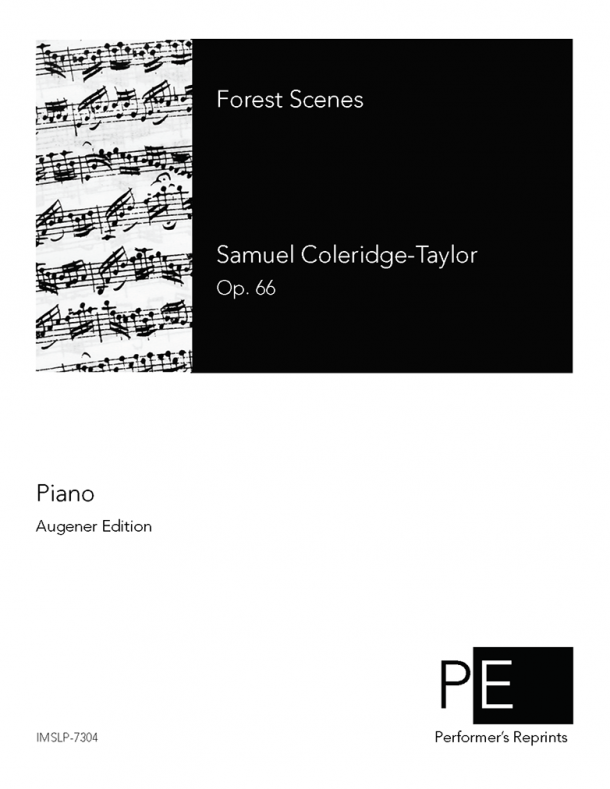Obscure Music Monday: Coleridge-Taylor's Forest Scenes
Samuel Colderidge-Taylor (Aug. 15, 1875 - Sept. 1, 1912) was born in London, England, to Alice Hare Martin, an English woman, and Dr. Daniel Peter Hughes Taylor, from Sierre Leone. They weren't married, and Daniel Taylor returned to Africa before 1875, unaware he had a son. Martin named her child after the poet, Samuel Taylor Coleridge, and was raised in Croydon, Surrey by his mother, and her father. Coleridge-Taylor studied violin at the Royal College of Music, and was later on appointed professor at the Crystal Palace School of Music, and conducted the orchestra at the Croyden Conservatory. Coleridge-Taylor found success at the Three Choirs Festival in Gloucester and Worcester; he was recommended by Edward Elgar, who heard rave reviews about Coleridge-Taylor from noted music critic and editor August Jaeger. He had much success during his time, and his interest in African-American culture brought him to the States on several occasions where his success continued. He made such an impression that he was invited to the White House by Theodore Roosevelt.
Coleridge-Taylor composed for various genres, and wrote Forest Scenes for solo piano in 1907. This brilliant work is in five movements, and tells a tale of a maiden and phantom. In the first movement, "The Lone Forest Maiden," we're introduced to the first character. After a brief opening with a beautiful theme, we're introduced to a fun section with harmonies and chord progressions that sound like they could be in a modern song you'd hear on the radio. We're introduced to the second character in the next movement, "The Phantom Lover Arrives." There's an ostinato in the left hand that sounds ominous at times, but the movement is anything but. In the third movement, "The Phantom Tells His Tale of Longing," the writing sparkles, and the phantom's story sounds simultaneously sad and sweet. In "While They Ride, the Forest Maiden Acknowledges Her Love" you can imagine the horses galloping in the beginning with the boisterous line, but then gives way to much more lyrical and calm melody, which is obviously the maiden's. In the final movement, "Now Proudly They Journey Towards the Great City," the happy couple are apparently waltzing to the great city! It has an awkward lilt in the beginning, but is indeed proud and confident, and ends triumphantly.
Here's a recording of this wonderful work for you to enjoy!*
*As Amazon Associates, we earn a small commission on qualifying purchases.


